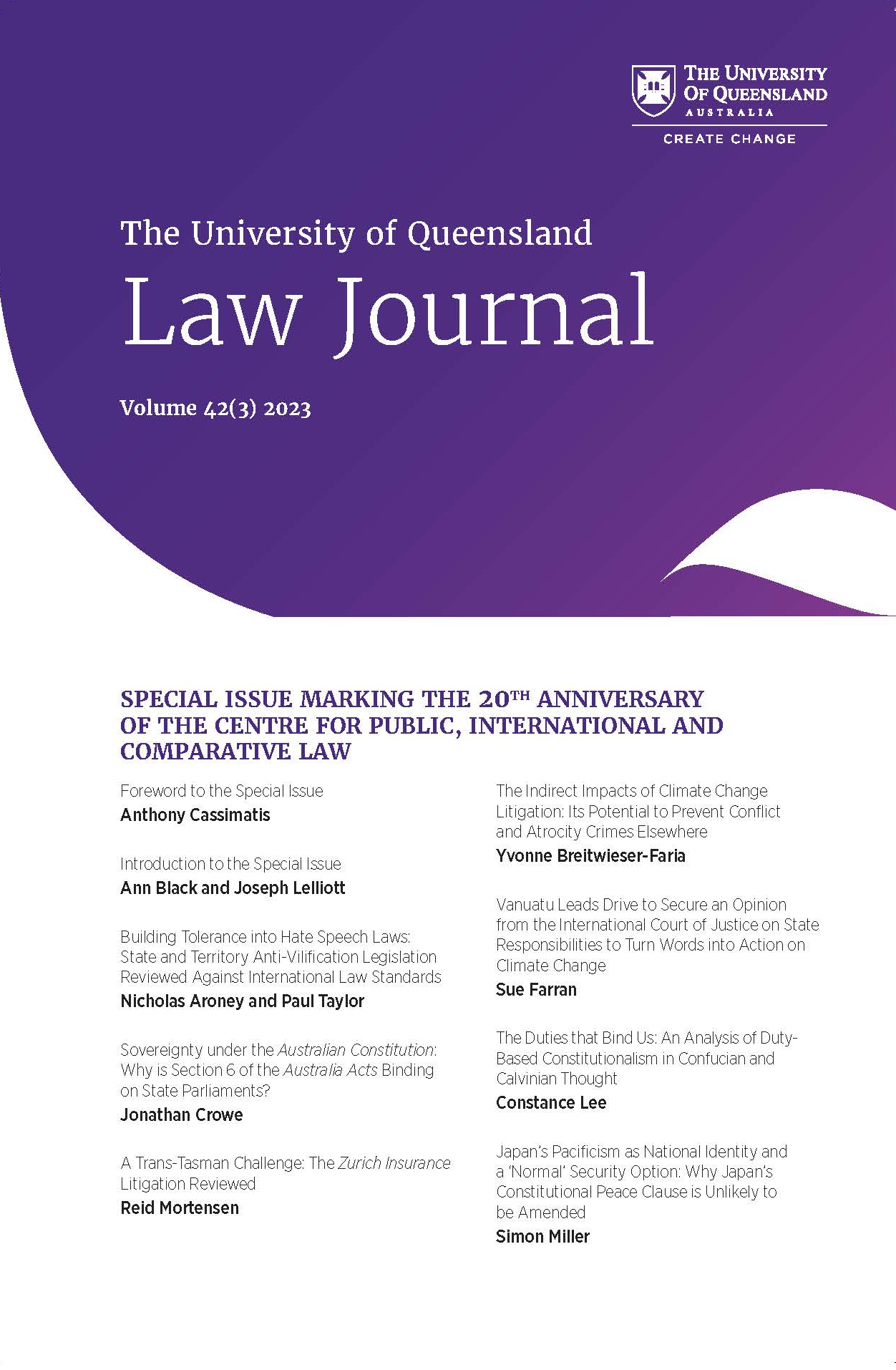Japan's Pacificism as National Identity and a 'Normal' Security Option: Why Japan's Constitutional Peace Clause is Unlikely to be Amended
Abstract
Japan faces its most serious and complex defence environment since the end of World War II. The country holds two significant security concerns: first, and critically, China’s burgeoning military, increasingly aggressive diplomacy, and destabilising actions around the Senkaku Islands in the East China Sea; second, North Korea’s continued unpredictable rhetoric and actions in its nuclear arming program and ballistic missile testing. Japan’s 2022 National Security Strategy proposes two unprecedented policy ideas to counter these threats: first, to significantly increase Japan’s defence budget; second, to acquire counterstrike long-range missile capabilities in response to an attack. Nonetheless, despite these security issues and policy developments, this article argues that formal amendment of the peace clause in art 9 of the Japanese Constitution remains unlikely. To understand the improbability of constitutional amendment, this article first explores Japan’s constitutional pacifism under the post-World War II Yoshida Doctrine and the US–Japan cornerstone security alliance, as well as the context of North Korea’s nuclear and ballistic missile threat and the emotive issue of abductions of Japanese citizens. The article then turns to Japan’s historic imperial relationship with China as an avenue to understand contemporary relations, including the key issues of trade and its link to security, and the Senkaku Islands sovereignty dispute. It concludes that formal constitutional amendment of the peace clause remains unlikely in the short to medium term.
